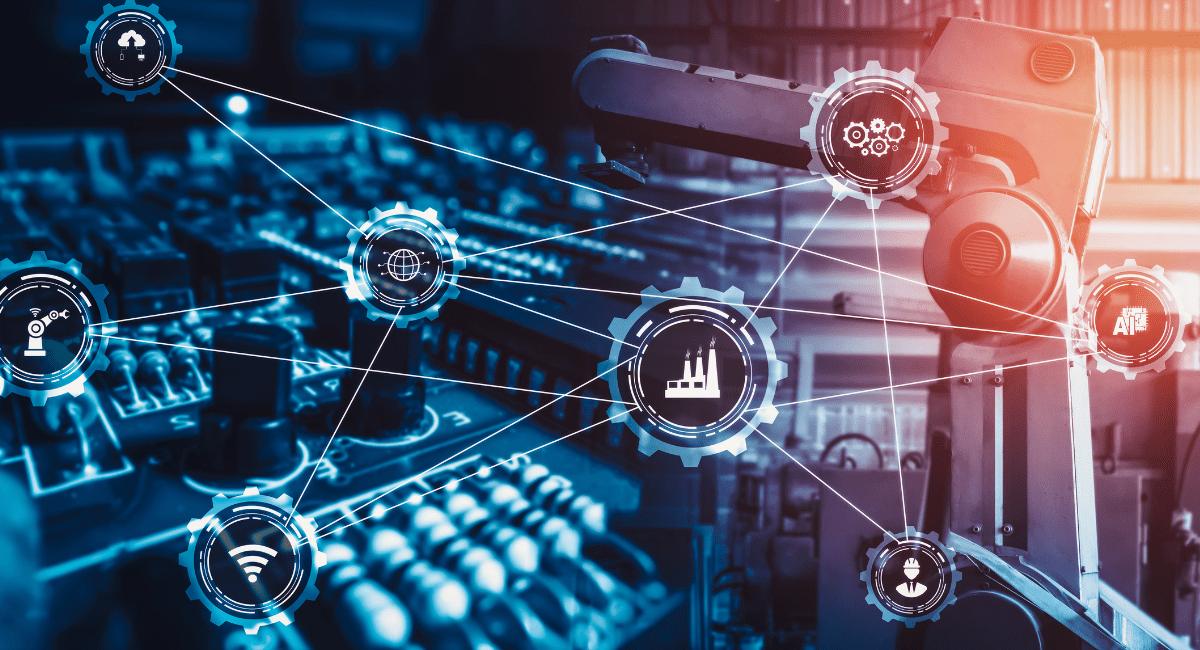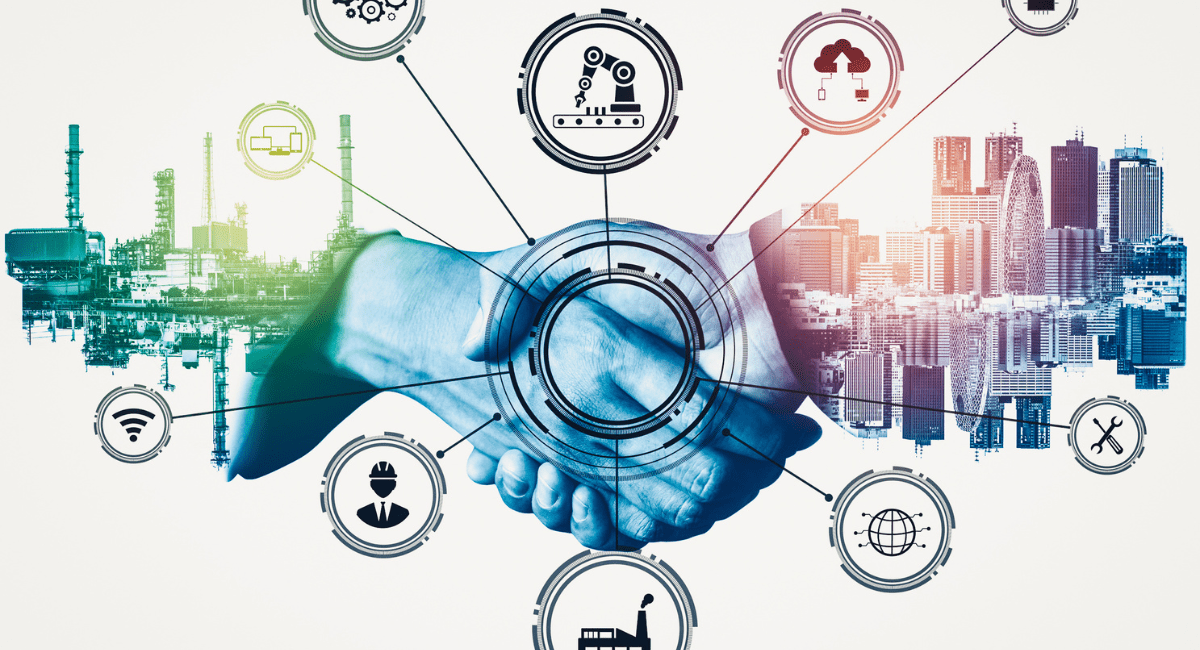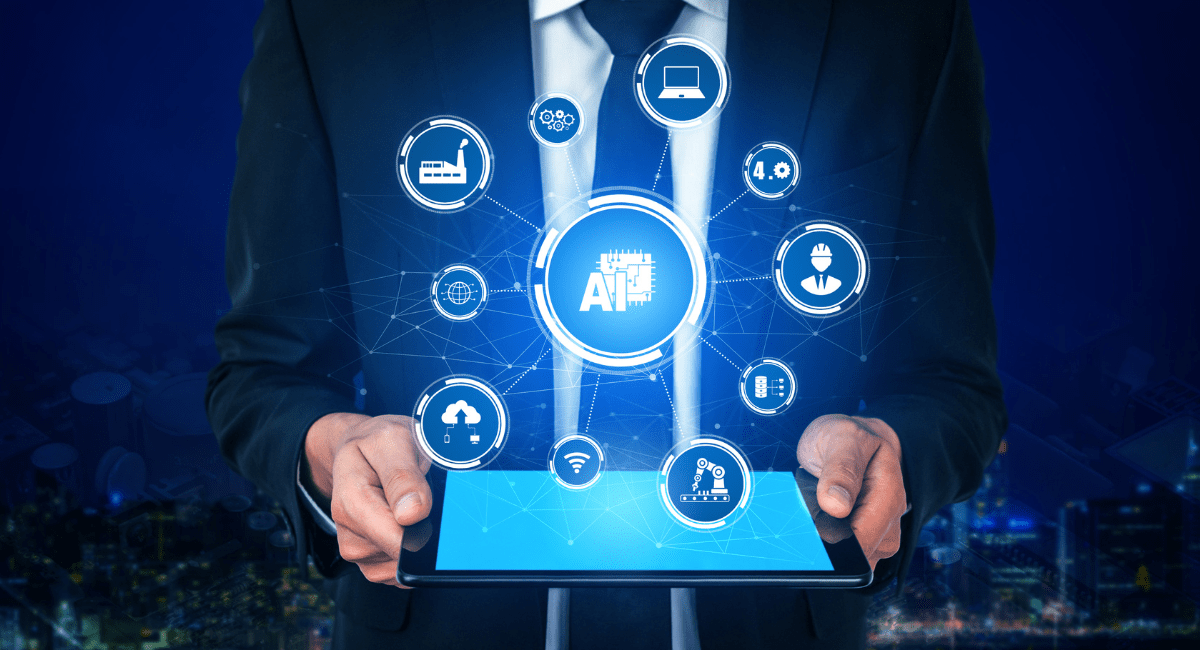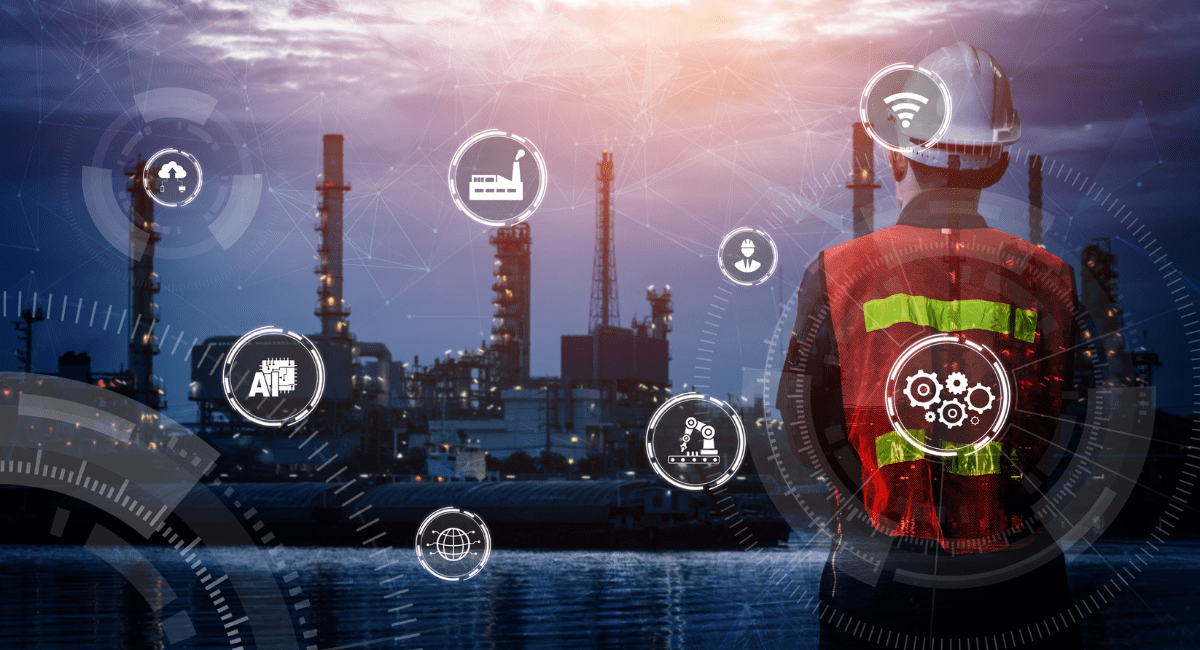How Will Metaverse Bring The Next Industrial Revolution?

The Metaverse, a term that once resided in the realms of science fiction and futuristic fantasies, has transcended its speculative origins to emerge as a transformative force with the potential to usher in the next industrial revolution. At its core, the Metaverse represents a convergence of cutting-edge technologies, immersive digital experiences, and a shared virtual space that extends beyond the boundaries of traditional online platforms. To comprehend the impact of the Metaverse in the context of an industrial revolution, it is essential to explore its defining elements and the revolutionary changes it promises to bring to various sectors.
The Metaverse Unveiled: A Fusion of Technologies
Virtual Reality (VR) and Augmented Reality (AR):
The Metaverse leverages virtual reality (VR) to create immersive digital environments that users can explore and interact with. Augmented reality (AR) overlays digital content onto the real world, seamlessly blending the physical and digital realms. This combination of VR and AR technologies forms the foundation of the Metaverse, providing users with an unprecedented level of immersion.
Blockchain Technology:
Blockchain serves as the secure backbone of the Metaverse, facilitating transparent and tamper-proof transactions. It plays a pivotal role in authenticating digital assets, ensuring the ownership and provenance of virtual items, and establishing a secure foundation for the emerging virtual economy within the Metaverse.
Artificial Intelligence (AI):
Artificial intelligence enhances the user experience within the Metaverse by providing intelligent interactions, personalization, and dynamic adaptability. AI algorithms contribute to creating lifelike virtual environments, responsive avatars, and sophisticated simulations that enrich the overall user engagement.
Also, read – How Augmented Reality In The Metaverse Works And Why Are They Important?
Metaverse as a Catalyst for Industrial Transformation

The Metaverse, a virtual space where augmented reality, virtual reality, and blockchain converge, is emerging as a transformative force with profound implications for the economic landscape and the way we work. This digital realm is not just a fanciful concept; it’s becoming a tangible reality that has the potential to reshape commerce, trade, and redefine the traditional boundaries of the workplace. In this exploration, we delve into the ways the Metaverse is acting as a catalyst for transformation in the economic landscape and remote work.
Economic Landscape Reshaped:
Virtual Economies:
The Metaverse introduces the concept of virtual economies, where users can buy, sell, and trade digital assets within immersive virtual environments. Blockchain technology serves as the underlying infrastructure, ensuring secure and transparent transactions. Virtual marketplaces are springing up within the Metaverse, allowing users to engage in a digital economy that spans virtual real estate, digital art, and even virtual goods and services.
NFTs and Digital Ownership:
Non-Fungible Tokens (NFTs) are a cornerstone of the Metaverse’s economic transformation. These unique digital assets, often representing art, collectibles, or virtual real estate, are tokenized on the blockchain. NFTs provide a mechanism for digital ownership, allowing users to buy, sell, and trade exclusive digital items. This introduces new revenue streams for creators and opens up opportunities for digital entrepreneurship.
Decentralized Finance (DeFi) in the Metaverse:
Decentralized Finance, a revolutionary concept in traditional finance, is making its way into the Metaverse. Blockchain-based financial services, such as decentralized exchanges and lending platforms, are flourishing within virtual environments. Users can participate in decentralized financial activities, transcending geographic limitations and traditional banking systems.
Remote Work and Collaboration:
Immersive Virtual Offices:
The Metaverse is redefining the way we work by providing immersive virtual offices and collaborative spaces. Rather than traditional video conferencing, remote teams can gather in a virtual office environment, enhancing communication and fostering a sense of presence. This shift transforms remote work from a series of two-dimensional interactions to a three-dimensional, spatial experience.
Global Collaboration Without Physical Constraints:
The traditional constraints of physical location are dissolved in the Metaverse. Teams can collaborate seamlessly regardless of their geographic location. This not only increases the pool of talent accessible to organizations but also fosters diversity and inclusion by breaking down barriers related to time zones and travel.
Virtual Training and Professional Development:
Beyond remote meetings, the Metaverse serves as an ideal space for virtual training and professional development. Immersive learning environments enable hands-on experiences, simulations, and interactive training sessions. Organizations can conduct virtual workshops, training sessions, and conferences, providing a richer and more engaging learning experience for employees.
Late GM.
Just onboarded several of our financial employees in London to crypto, NFTs, and the metaverse through a virtual training session. Also helped them create their Metamask wallets and sent each of them their first NFT. LFG!
— erking (@erking_eth) March 9, 2023
Top 10 Industry Transformations Through the Metaverse

The Metaverse, an immersive digital realm combining augmented reality, virtual reality, and blockchain technologies, is poised to revolutionize various industries. As this digital universe takes shape, it introduces transformative changes that extend far beyond gaming and entertainment. Here’s an in-depth exploration of the top 10 industries undergoing profound transformations through the Metaverse.
1. Gaming and Entertainment:
1.1 Immersive Gaming Experiences:
The gaming industry is at the forefront of Metaverse adoption. Virtual worlds within the Metaverse offer gamers more than just entertainment; they provide immersive and interactive experiences. Game developers leverage blockchain and NFTs to create unique in-game assets, allowing players true ownership and the ability to trade virtual items across different games.
1.2 Virtual Concerts and Events:
Entertainment in the Metaverse goes beyond traditional gaming. Virtual concerts and events hosted in digital spaces bring together global audiences. Artists and performers can connect with fans in novel ways, offering unique and interactive experiences. NFTs play a role in monetizing virtual events, offering exclusive digital merchandise and collectibles.
2. Real Estate and Virtual Property:
2.1 Virtual Real Estate Markets:
The Metaverse introduces the concept of virtual real estate, where users can buy, sell, and trade digital land. Blockchain ensures transparent ownership and transactions. Virtual property ownership extends to creating immersive experiences, from virtual homes to entire digital landscapes. This transformation lays the groundwork for new forms of digital architecture and urban planning.
2.2 Virtual Architectural Visualization:
Architects and real estate developers utilize the Metaverse for virtual architectural visualization. Virtual walkthroughs, immersive experiences, and collaborative design spaces redefine the way architectural projects are conceptualized and presented. Virtual real estate tours become commonplace, allowing users to explore properties in a lifelike digital environment.
3. Education and Training:
3.1 Immersive Learning Environments:
The Metaverse revolutionizes education by providing immersive learning environments. Students can engage in hands-on experiences, simulations, and interactive lessons. Virtual classrooms transcend geographical constraints, fostering global collaboration. NFTs play a role in tokenizing educational credentials, creating secure and verifiable digital certificates.
3.2 Professional Development in Virtual Spaces:
Companies leverage the Metaverse for professional development and training programs. Virtual workshops, simulations, and collaborative spaces enhance employee learning experiences. Virtual reality (VR) and augmented reality (AR) technologies create realistic scenarios for hands-on training across industries, from healthcare to manufacturing.
4. Healthcare and Telemedicine:
4.1 Virtual Healthcare Consultations:
The Metaverse transforms healthcare by enabling virtual consultations and medical experiences. Patients can engage with healthcare professionals in virtual clinics. Virtual reality facilitates immersive medical training for healthcare practitioners. The secure and transparent nature of blockchain enhances data integrity and patient privacy.
4.2 Medical Training Simulations:
Medical professionals utilize the Metaverse for realistic training simulations. Surgeons practice procedures, and healthcare workers engage in virtual patient interactions. These simulations enhance skills, improve decision-making, and contribute to continuous medical education.
5. Fashion and Virtual Wearables:
5.1 Digital Fashion Shows and Virtual Wearables:
The fashion industry enters the Metaverse with virtual fashion shows and digital wearables. Designers showcase their creations in virtual environments, reaching global audiences. Virtual wearables, represented by NFTs, allow users to personalize their digital avatars with exclusive and collectible fashion items.
5.2 Blockchain for Supply Chain Transparency:
Blockchain technology is integrated into the fashion industry within the Metaverse to ensure transparency in the supply chain. Consumers can trace the origin of digital and physical fashion items, verifying authenticity and ethical sourcing.
6. Finance and Decentralized Finance (DeFi):
6.1 Virtual Banking and Transactions:
The Metaverse introduces virtual banking and financial transactions. Users can engage in virtual commerce, trade digital assets, and participate in decentralized finance (DeFi) activities within virtual spaces. Blockchain ensures secure and transparent financial interactions.
6.2 Decentralized Exchanges and NFT Marketplaces:
Decentralized finance extends to decentralized exchanges and NFT marketplaces within the Metaverse. Users trade digital assets, including NFTs, without intermediaries. Smart contracts enable trustless transactions, and NFTs represent unique digital assets with verifiable ownership.
7. Marketing and Advertising:
7.1 Immersive Brand Experiences:
Marketing and advertising evolve in the Metaverse by offering immersive brand experiences. Companies create virtual spaces for users to interact with products and services. NFTs are used for digital collectibles and limited-edition virtual items as part of marketing campaigns.
7.2 Virtual Influencers and Advertising:
Virtual influencers, powered by AI and blockchain, become part of marketing strategies within the Metaverse. Brands collaborate with virtual personalities to reach target audiences. NFTs may represent exclusive collaborations and virtual merchandise tied to advertising campaigns.
8. Art and Creative Industries:
8.1 Tokenized Digital Art and Collectibles:
Artists tokenize their creations as NFTs within the Metaverse, creating a market for digital art and collectibles. Blockchain ensures provenance and authenticity. Virtual galleries and museums showcase digital art, transforming the way society values and engages with creative expressions.
8.2 Collaborative Art Projects in Virtual Spaces:
Artists collaborate on projects within virtual spaces, transcending physical limitations. The Metaverse provides a platform for global collaborations, allowing artists to contribute to collective art projects and exhibitions.
9. Social Media and Communication:
9.1 Digital Identities and Social Interactions:
The Metaverse redefines social media by introducing digital identities and immersive social interactions. Users engage with others through avatars, attending virtual events, and participating in shared digital experiences. NFTs may represent digital assets tied to social interactions and virtual relationships.
9.2 Virtual Events and Conferences:
Social media platforms within the Metaverse host virtual events and conferences. Attendees interact in real-time, networking in digital spaces. NFTs may serve as access tokens for exclusive virtual events and VIP experiences.
10. Automotive and Virtual Test Drives:
10.1 Virtual Showrooms and Test Drives:
The automotive industry embraces the Metaverse by creating virtual showrooms and test drive experiences. Users can explore virtual car models and even take simulated test drives. Blockchain ensures the integrity of digital car ownership records and transactions.
10.2 Supply Chain Management with Blockchain:
Blockchain technology in the Metaverse extends to supply chain management in the automotive industry. From manufacturing to delivery, blockchain enhances transparency and traceability, reducing the risk of counterfeit parts and ensuring quality control.

The Metaverse is not a singular phenomenon but a multifaceted landscape that touches every aspect of our digital and physical existence. These transformations across industries herald a new era of innovation, collaboration, and value creation. As the Metaverse continues to evolve, its impact on diverse sectors will redefine how we live, work, and interact in the digital age.



























































